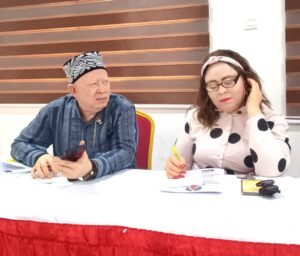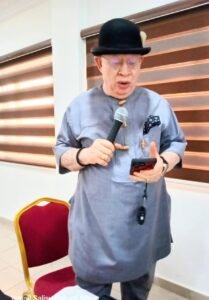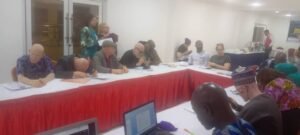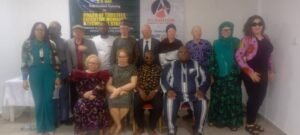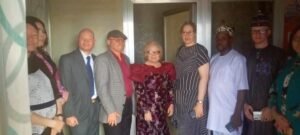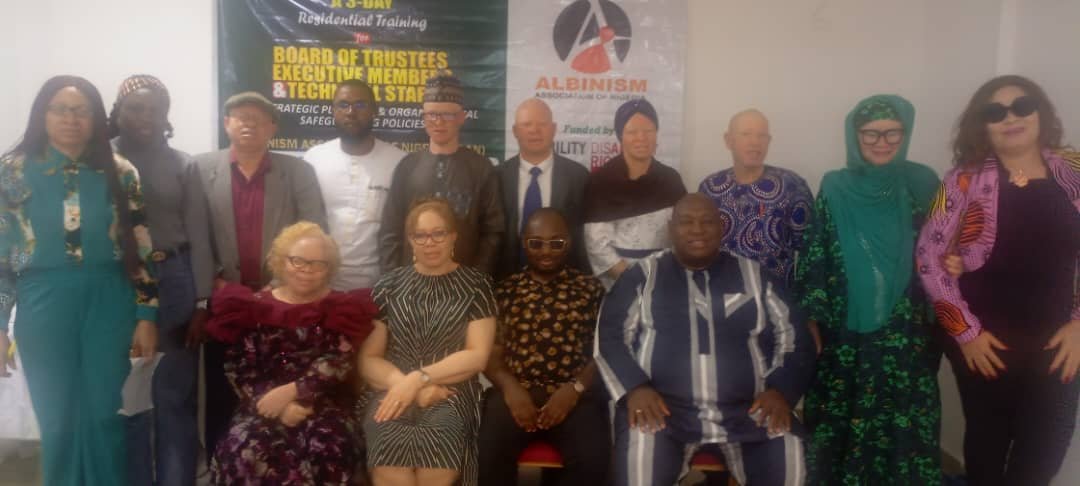A BROAD REPORT ON THE THREE-DAY RESIDENTIAL TRAINING ON CAPACITY BUILDING FOR BOARD MEMBERS, EXECUTIVE MEMBERS AND TECHNICAL TEAM OF ALBINISM ASSOCIATION OF NIGERIA (AAN) ON STRATEGIC PLANNING AND SAFEGUARDING POLICES OF THE ASSOCIATION
Date: 28th – 30th August, 2024
Venue: Blue Spring Hotel, Abuja FCT
Participants: Board Members, Executive Members, and Technical Staff of the Albinism Association of Nigeria (AAN)
Introduction
The Albinism Association of Nigeria (AAN) successfully conducted a three-day residential training focused on Capacity Building, Strategic Planning, and Safeguarding Policies from the 28th to 30th of August, 2024, at Blue Spring Hotel, Abuja FCT. The training aimed to equip board members, executive members, and technical staff with the necessary skills and knowledge to enhance the operational effectiveness of the association, promotes strategic alignment, and ensures the safety and protection of all stakeholders involved in the association’s activities.
Objectives of the Training
The primary objectives of the training were to:
- Strengthen the governance and leadership capabilities of the Board and Executive Members.
- Develop a robust strategic plan to guide the association’s activities and initiatives in the coming years.
- Introduce and reinforce safeguarding policies to protect vulnerable individuals associated with the association.
- Foster a collaborative environment for sharing best practices and aligning the association’s goals with national and international standards.
Training Overview
The training was structured into interactive sessions, group discussions, and practical workshops over the course of three days. The agenda was carefully designed to address the specific needs of the participants and covered the following key areas:
Day 1: Governance and Leadership
- Session 1: Enhancing Governance Practices
- Facilitator: Opeyemi Oladimeji (Consultant)
- Key Topic: Strengthening Organizational Safeguarding Policies (Part I)
- Session 2: Leadership in Non-Profit Organizations
- Facilitator: Opeyemi Oladimeji (Consultant)
- Key Topic: Leadership styles, fostering collaboration, and driving organizational change.
- Workshop: Review and Feedback
- A comprehensive review of the training outcomes was conducted, with participants providing feedback on the sessions and discussing the next steps for implementation.
- Session 3: Report on AAN Project Activities
- Facilitator: Joseph Akuse (Program Manager)& Bisi Bamishe(Executive Director)
- Key Topic: Introducing AAN Project Team, AAN Activities Conducted, State Level Engagement, Challenges and the Way forward to BOT
Day 2: Safeguarding Policies
- Session 1:Strengthening Organizational Safeguarding Policies (Part II)
(Introduction to Safeguarding Policies and Implementation AAN)
-
- Facilitator: Opeyemi Oladimeji (Consultant)
- Key Topic: Definition and importance of safeguarding policies, identifying vulnerable groups, understanding legal and ethical responsibilities, reporting mechanisms, and training staff on safeguarding practices..
- Workshop 1: Creating a Safeguarding Framework
-
- Participants were tasked with making a review of safeguarding framework tailored to AAN’s specific needs, focusing on prevention, reporting, and response protocols.
- Session 2:Collaboration and Communication Skills
- Facilitator: Jake Epelle (AAN Pioneer President)
- Key Topic: Enhancing collaboration and communication among Board of Trustees, Executive Members, & Technical Staff
- Workshop 2:Networking Session
-
- Participants were tasked with identifying collaboration and communication gaps and possible solutions
DAY 3: Strategic Planning
- Session 1: Overview of Strategic Planning
- Facilitator: Joseph Akuse (Program Manager)
- Key Topic: Understanding the importance of strategic planning, aligning goals with the association’s vision, and setting achievable targets.
- Session 2: Developing a Strategic Plan for AAN
- Facilitator: John Joshua (BOT Representative)
- Key Topic: Steps in creating a strategic plan, stakeholder analysis, and resource allocation.
- Workshop: Practical Exercise on Strategic Planning
- Participants worked in groups to develop a draft strategic plan, which was later reviewed and discussed in a plenary session.
Outcomes and Achievements
The training yielded several positive outcomes, including:
- Strategic Planning:The training provided participants with an understanding of the importance of strategic planning in achieving the organization’s goals. Participants learned how to develop a clear and concise vision, set achievable objectives, and prioritize activities to achieve those objectives.
- Safeguarding Policies:The training focused on the importance of safeguarding policies in ensuring the well-being and protection of individuals with albinism. Participants learned about the different types of safeguarding policies, how to identify and report potential risks, and how to develop a comprehensive safeguarding policy.
- Capacity Building:The training provided opportunities for participants to share their experiences, challenges, and best practices in implementing strategic plans and safeguarding policies. Participants also learned from international experts in the field of albinism and disability rights.
- Networking:The training provided a platform for participants to network and build relationships with colleagues from different parts of the country. This will help to foster collaboration, sharing of knowledge, and resources.
- The training was attended by 15 participants, including Board Members, Executive and Technical Staff of Albinism Association of Nigeria (AAN) and three other special guests: DRF Representative (Theophilus Odaudu); Jake Epelle (AAN Founding President) and Opeyemi Oladimeji (Consultant) making a total of 18 participants overall.
- A comprehensive resource pack was provided to participants, which included materials on strategic planning, safeguarding policies, and best practices in implementing these policies.
Challenges and Lessons Learned: While the training was largely successful, some challenges were noted:
- Time Constraints: The comprehensive nature of the topics meant that some sessions had to be condensed, limiting the depth of discussion in certain areas.
- Diverse Needs: The varying levels of experience among participants required facilitators to adapt their presentations to ensure all attendees could engage meaningfully.
Key lessons learned include the importance of allowing more time for practical exercises and the need for ongoing training to reinforce the concepts introduced during the sessions.
Recommendations: Based on the feedback and outcomes of the training, the following recommendations are proposed:
- Follow-up Training: Regular follow-up sessions should be organized to build on the foundation established during this training and to address emerging challenges.
- Implementation Monitoring: A monitoring framework should be established to track the implementation of the strategic plan and safeguarding policies, ensuring accountability and continuous improvement.
- Stakeholder Engagement: Ongoing engagement with stakeholders, including beneficiaries, donors, and partners, should be prioritized to ensure the association’s activities remain aligned with broader community needs and expectations.
Conclusion: The three-day residential training on Capacity Building for the Albinism Association of Nigeria was a resounding success, achieving its objectives of enhancing strategic planning, safeguarding policies, and governance practices. The commitment shown by all participants underscores the association’s dedication to continuous improvement and the well-being of its members and the wider community. We look forward to seeing the positive impact of this training reflected in the association’s future activities and initiatives.
Best regards,
Joseph Akuse (Programme Manager)
Albinism Association of Nigeria (AAN)
